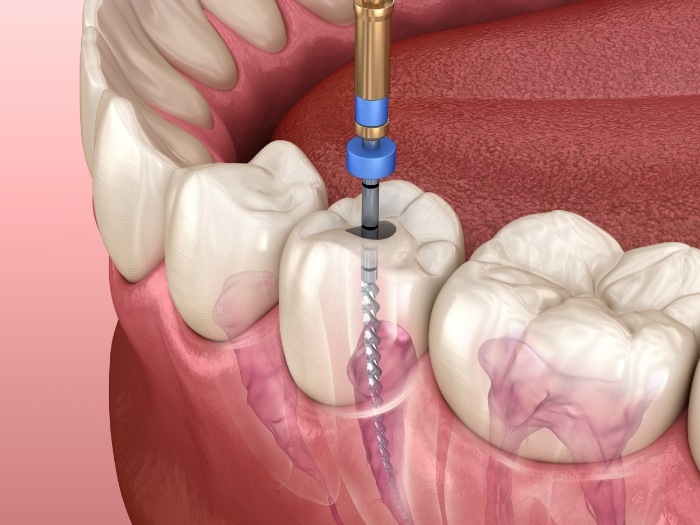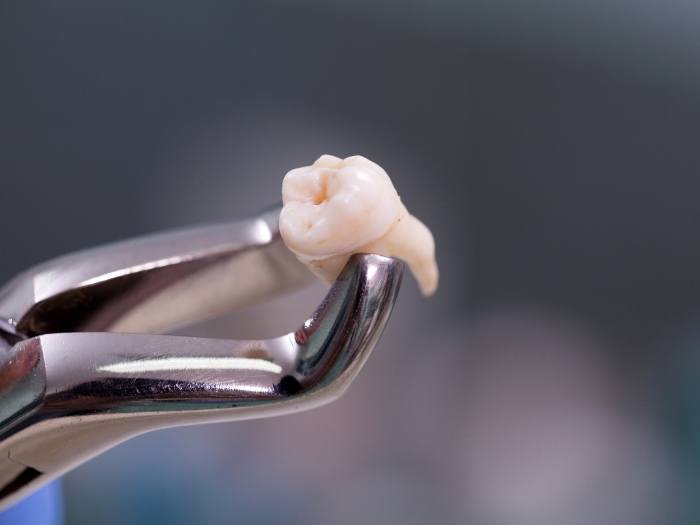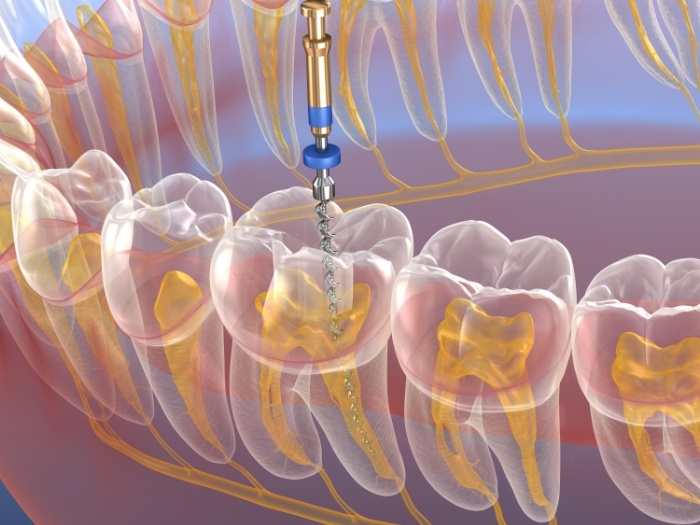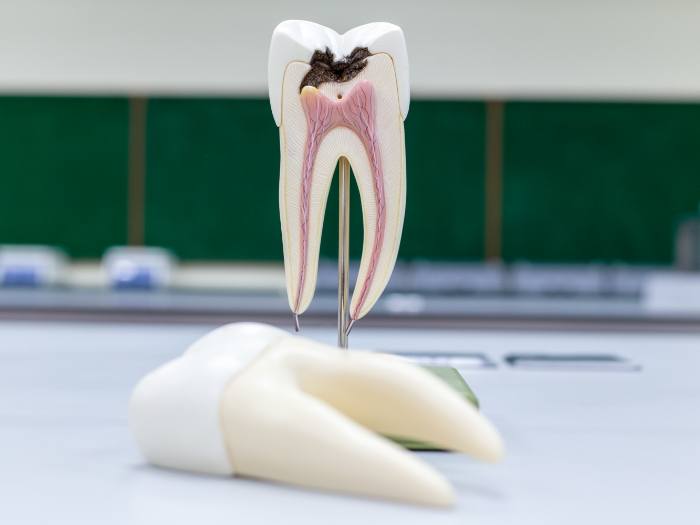Root Canal Treatment Wethersfield
Stop Your Pain & Save Your Tooth

Endodontic treatment is a specialized subset of dentistry that focuses just on the inner pulp and nerve structures of the tooth. One of the most common procedures associated with endodontics is root canal treatment, which becomes necessary when a tooth is so badly infected that the harmful bacteria has reached these vulnerable inner nerves within the canal(s). At Dolan Dental Group, we can rescue the natural tooth and alleviate severe oral pain for the sake of our patients’ ongoing well-being. Please contact our Wethersfield, CT practice today to get started!
Why Choose Dolan Dental Group for Root Canal Treatment?
- Dental Sedation Offered
- Team That Cares About Comfort
- The Latest Dental Technology
What Happens During a Root Canal?

A hole will be created in your tooth so that the pulp can be taken out in order to put a stop to your pain. To ensure that there are no bacteria remaining, we will take the time to clean the inside of your tooth. Once we’re done with that, the tooth will be refilled with a biocompatible substance. You can expect to have a crown placed at some point to keep your tooth safe. Your mouth will be kept numb during your root canal treatment, so you won’t have to worry about discomfort.
Root Canal vs. Extraction

An extraction eliminates the problem at the source, but it is a short-term solution because it opens the door to a new list of complications associated with missing teeth. You’ll have an increased risk of cavities, gum disease, and additional tooth loss. Also, you might feel insecure about your incomplete smile. A root canal prevents the risks by preserving your natural smile for the long term.
Root Canal Treatment Process

During root canal treatment, Dr. Brendan Dolan or Dr. Riley Gionfriddo will carefully access the inner chamber of the affected tooth, allowing them to remove infected tissue and thoroughly clean the area. We then replace the original pulp with a safe substitute that’s known as gutta percha before sealing the area to reduce the risk of further infection. In most cases, we’ll strongly recommend that a new dental restoration (usually a crown) be placed over the tooth to restore its shape and strength. This placement is also likely to increase the success of the procedure!
Following your root canal treatment, you will likely experience significant relief from the toothache pain and dental sensitivity that preceded the need for this treatment. However, you may notice some swelling and irritation in the soft tissue around the treated tooth, and patients are likely to experience some soreness. Painkillers can be used to treat this issue until the sensation subsides. We may also prescribe oral and/or topical antibiotic treatments to reduce oral bacteria presence and improve your health if there is an infection around the treated tooth. We will also talk to you about how to care for your tooth following root canal treatment, including using soft-bristled toothbrushes and minimally abrasive toothpaste to avoid wearing the dental crown.
Signs You Need a Root Canal

The only way to know for certain that you need a root canal is to visit our office for an exam and treatment consultation. Unfortunately, we see most patients in need of root canal treatments on an emergency basis, so it’s important you’re aware of the warning signs that you may need one. Some of the most common symptoms include:
- Severe toothache that may be a dull constant throb, sharp pain when biting down, or both.
- Sensitivity that lingers after exposure to heat or cold.
- Discoloration of the tooth, usually darkening near the gum line.
- Swelling, irritation, inflammation, or infection in the gums around a single tooth.
Root Canal Treatment FAQs
Are root canals painful?
You’ve probably heard a few people complain about root canals, but you might be surprised to learn they aren’t as bad as you might believe. In fact, many patients compare the pain level to matching that of a dental filling. Our office uses the latest advancements in dentistry to make the treatment less invasive and more effective.
Should I consider sedation dentistry?
Many patients become nervous or agitated when they hear the words “root canal,” and we understand why. However, it’s important to remember that advancements in dental technology and local anesthetics have resulted in the root canal process becoming much safer and more comfortable over time. If you determine that you’re in need of dental sedation, we are happy to offer nitrous oxide and oral conscious sedation to help patients achieve the optimal level of comfort throughout treatment.
How much does a root canal cost?
There’s no set cost for a root canal because the fee is based on your specific treatment plan. There are various factors that can influence the cost. We’ll provide you with a custom estimate during your consultation and discuss the fees associated with it. A member of our team will discuss your payment options to repair your tooth without worrying about any added financial burden.
Can I use my dental insurance to help pay for root canal treatment?
Although every policy differs, most insurance companies offer restorative coverage. After paying your annual deductible, your insurance will cover a portion of the cost. We will work on your behalf with your insurance carrier to lower the amount you need to pay out-of-pocket. If there’s any remaining balance, we accept several payment options, like third-party financing with CareCredit.
